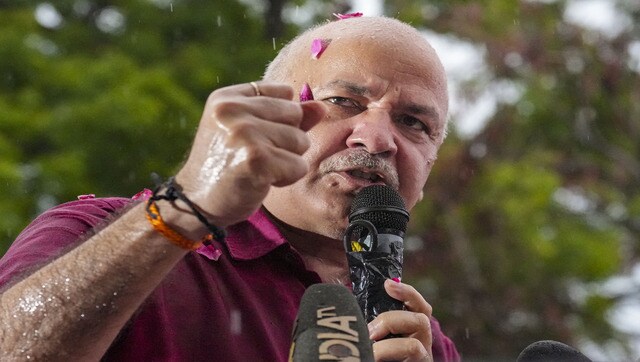The Ongoing Battle: Car Dealers Maintain Opposition To EV Mandates

Table of Contents
Economic Concerns: The Impact on Dealerships and Their Business Models
The financial implications of EV mandates pose a considerable threat to dealerships' economic viability. The transition to an EV-centric market requires significant upfront investments and operational adjustments, placing a heavy burden on already established business models.
- Infrastructure Investment: Dealerships must invest heavily in new infrastructure, including the installation of EV charging stations, which can be costly and require specialized expertise.
- Staff Training: Training staff on the nuances of EV technology, maintenance, and repair is crucial, adding another layer of expense to the transition.
- Inventory Management: Current limitations in EV production can lead to inventory challenges, potentially impacting sales and revenue streams.
- Reduced Profit Margins: The profit margins on EVs are currently lower compared to those of internal combustion engine (ICE) vehicles, impacting dealerships’ overall profitability.
- Increased Service and Repair Costs: Servicing and repairing EVs can also prove more expensive than ICE vehicles, potentially impacting the after-sales revenue dealerships rely on.
The transition costs involved in shifting from the sale of predominantly ICE vehicles to EVs are substantial. Many dealerships, especially smaller ones, may lack the financial resources to manage this transition effectively. For example, some rural dealerships are facing immense challenges due to the lack of access to electricity grid upgrades required for high-powered charging stations. This underscores the economic inequality inherent in a rapid, mandate-driven shift to EVs.
Infrastructure Challenges: Inadequate Charging Network and Consumer Readiness
A significant hurdle to widespread EV adoption is the lack of a robust and reliable charging infrastructure. This inadequacy fuels consumer anxieties and hinders the seamless transition to electric vehicles.
- Geographic Disparities: Access to charging stations is unevenly distributed, with significant disparities between urban and rural areas.
- Charging Speed Limitations: The speed of charging remains a concern for many potential EV buyers, particularly those with limited time for charging.
- Range Anxiety: Concerns about the driving range of EVs and the availability of charging stations remain a major psychological barrier for consumers.
- Uncertainty about Long-Term Costs: The long-term maintenance and repair costs associated with EV batteries are still unclear, creating uncertainty amongst potential buyers.
Dealerships play a crucial role in addressing these concerns by educating consumers about the practicalities of EV ownership, dispelling myths about range anxiety, and providing clear information about charging options and maintenance procedures. However, without sufficient government investment in charging infrastructure, this task becomes exponentially more difficult. Current statistics reveal that only a small percentage of the population has convenient access to fast charging stations, highlighting a critical need for investment and expansion.
Consumer Demand and Market Readiness: Are Consumers Truly Ready for a Mass EV Transition?
While EV adoption is growing, arguments persist regarding the genuine level of consumer demand and market readiness for a complete shift away from ICE vehicles. Several factors contribute to consumer reluctance:
- Price Disparities: EVs remain more expensive than comparable ICE vehicles, making them inaccessible to many consumers.
- Limited Model Choices: The range of EV models available is still limited compared to the vast selection of ICE vehicles, limiting consumer options.
- Battery Life and Range Concerns: Concerns about battery lifespan and range continue to deter potential buyers.
- Lack of Awareness about Incentives: Many consumers remain unaware of the government incentives and subsidies available for EV purchases.
- Preference for Gas Vehicles: A significant portion of consumers still expresses a preference for traditional gasoline-powered vehicles due to familiarity and established driving habits.
Changing ingrained consumer behaviour requires more than simply imposing mandates. Market research consistently shows that while interest in EVs is growing, a significant portion of the population remains hesitant to make the switch. Addressing these concerns through education and affordability initiatives is crucial for successful EV adoption.
The Dealers' Counter-Proposals: Alternative Solutions to Encourage EV Adoption
Rather than imposing mandates, car dealers suggest alternative approaches to accelerate EV adoption while mitigating the risks to their businesses and the wider automotive ecosystem.
- Consumer-Focused Incentives: Government incentives should focus on making EVs more affordable for consumers, possibly through tax credits or subsidies.
- Charging Infrastructure Development: Significant investment in the development and expansion of a nationwide charging network is vital.
- Support for EV Research and Development: Continued investment in EV research and development will lead to improved battery technology, longer ranges, and lower costs.
- Public Education Campaigns: Comprehensive public education campaigns are essential to address misconceptions and alleviate range anxiety.
Collaboration between automakers, dealerships, and government agencies is key to finding sustainable solutions. Successful examples from other countries, like Norway, demonstrate that a combined approach of incentives, infrastructure development, and public awareness campaigns can significantly accelerate EV adoption without solely relying on mandates.
Navigating the Future of Automotive Sales and EV Mandates
The arguments against EV mandates presented by car dealerships highlight significant economic and infrastructural challenges. The transition to electric vehicles requires careful consideration of consumer readiness and the exploration of alternative strategies to promote widespread adoption. Ignoring the concerns of car dealers could jeopardize the smooth transition to a sustainable transportation future. How can we balance the need for sustainable transportation with the concerns of car dealers and ensure a smooth transition to a wider adoption of EVs? The impact of EV mandates must be carefully considered, addressing the EV market challenges and paving the way for a future where EV adoption is both successful and equitable. The future of EV adoption hinges on finding a collaborative path forward.

Featured Posts
-
 10 Run Inning Doesnt Dim Padres Bullpens Positive Outlook Tom Krasovic
May 16, 2025
10 Run Inning Doesnt Dim Padres Bullpens Positive Outlook Tom Krasovic
May 16, 2025 -
 Vont Weekend April 4 6 2025 In Five Pictures
May 16, 2025
Vont Weekend April 4 6 2025 In Five Pictures
May 16, 2025 -
 Public Transport Update Bvg Strike Over S Bahn Issues Remain
May 16, 2025
Public Transport Update Bvg Strike Over S Bahn Issues Remain
May 16, 2025 -
 San Jose Earthquakes Scouting Report A Comprehensive Analysis
May 16, 2025
San Jose Earthquakes Scouting Report A Comprehensive Analysis
May 16, 2025 -
 Inavguratsiya Trampa Proti Vistavi Otello Porivnyannya Zovnishnogo Viglyadu Dzho Baydena
May 16, 2025
Inavguratsiya Trampa Proti Vistavi Otello Porivnyannya Zovnishnogo Viglyadu Dzho Baydena
May 16, 2025
Latest Posts
-
 First Up News Roundup Bangladesh Yunus Rubios Caribbean Trip And Global Headlines
May 16, 2025
First Up News Roundup Bangladesh Yunus Rubios Caribbean Trip And Global Headlines
May 16, 2025 -
 Bangladesh China Caribbean Updates Todays Essential News From First Up
May 16, 2025
Bangladesh China Caribbean Updates Todays Essential News From First Up
May 16, 2025 -
 Inavguratsiya Trampa Proti Vistavi Otello Porivnyannya Zovnishnogo Viglyadu Dzho Baydena
May 16, 2025
Inavguratsiya Trampa Proti Vistavi Otello Porivnyannya Zovnishnogo Viglyadu Dzho Baydena
May 16, 2025 -
 Firstposts First Up Key News Bangladesh China Caribbean And Beyond
May 16, 2025
Firstposts First Up Key News Bangladesh China Caribbean And Beyond
May 16, 2025 -
 Bayden Na Vistavi Otello Analiz Yogo Zovnishnogo Viglyadu Ta Porivnyannya Z Inavguratsiyeyu Trampa
May 16, 2025
Bayden Na Vistavi Otello Analiz Yogo Zovnishnogo Viglyadu Ta Porivnyannya Z Inavguratsiyeyu Trampa
May 16, 2025
